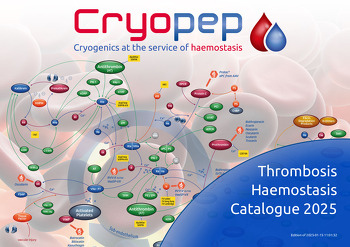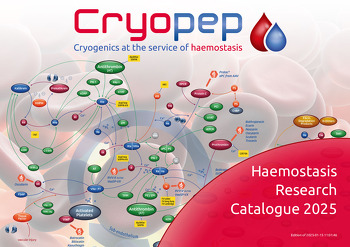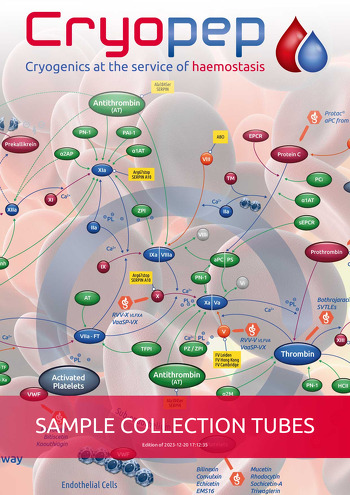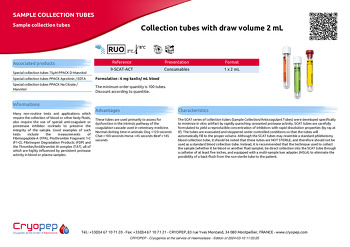HEMOSTASIS COAGULATION RESEARCH REAGENTS SAMPLE COLLECTION TUBES SAMPLE COLLECTION TUBES
Collection tubes with draw volume 2 mL
Formulation : 6 mg kaolin/ mL blood
The minimum order quantity is 100 tubes.
Discount according to quantitie.
Advantages
These tubes are used primarily to assess for dysfunction in the intrinsic pathway of the coagulation cascade used in veterinary medicine. Normal clotting time in animals: Dog <120 seconds Chat <100 seconds Horse <45 seconds Beef <145 seconds
Informations
Many non-routine tests and applications which require the collection of blood or other body fluids, also require the use of special anti-coagulant or proteinase inhibitor cocktails to preserve the integrity of the sample. Good examples of such tests include the measurements of Fibrinopeptide-A (FPA), Prothrombin Fragment 1•2 (F1•2), Fibrinogen Degradation Products (FDP) and the Thrombin/Antithrombin III complex (TAT), all of which are highly influenced by persistent protease activity in blood or plasma samples.
Documentation
Download the product sheetPrice list, safety data sheets and notices are accessible to our registered customers.
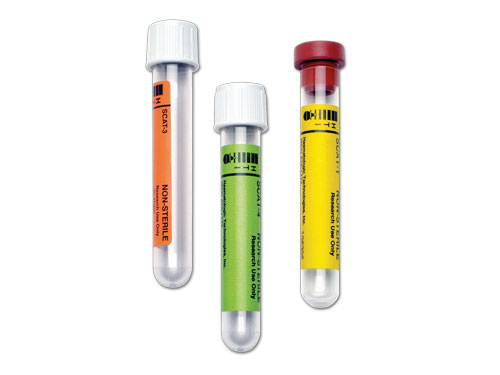





References
| 9-SCAT-ACT | Consumables | 1 x 2 mL |












